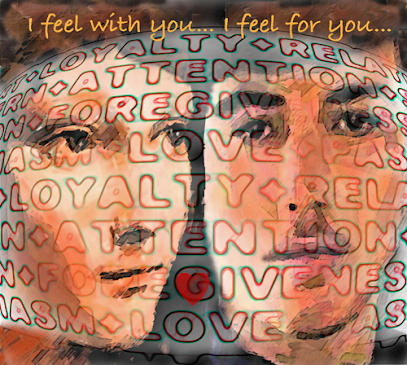Is Morality Objective Or Subjective?
The fundamental philosophical quandary surrounding morality's nature emerges from competing metaphysical frameworks. If an omnipotent, benevolent deity exists, moral imperatives would possess objective reality—immutable truths analogous to scientific facts like water's molecular composition. However, eliminating divine authority leaves us confronting naturalistic explanations where diverse cultural practices suggest moral relativism. This dichotomy presents a troubling scenario: either morality derives from transcendent sources, granting it universal validity, or it represents merely subjective preferences, cultural constructs, or expressions of societal power dynamics.
Contemporary ethical discourse reveals an inherent contradiction in our moral reasoning. While acknowledging cultural diversity in moral codes, most rational individuals feel justified condemning egregious acts like genocide, regardless of their occurrence in distant societies whose autonomy we otherwise respect. This intuitive response challenges pure subjectivism—if morality were entirely subjective, our condemnation would amount to nothing more substantial than declaring "your preferences displease us." Such a position appears intellectually untenable when confronting humanity's most heinous transgressions, suggesting that moral discourse requires firmer foundations than mere cultural preference.
The resolution lies in recognizing morality's distinctive character: unlike aesthetic preferences in cuisine or music, moral positions demand rational justification and reasoned defense. Moral arguments require substantiation beyond personal taste—even appeals to higher authority constitute attempts at rational grounding. While a comprehensive, unified moral theory remains elusive, moral discourse exhibits degrees of objectivity through evaluative criteria and the possibility of genuine progress. This perspective transcends the rigid objective-subjective dichotomy, acknowledging both morality's cultural variability and its susceptibility to rational evaluation and improvement.
Empirical observation reveals both universal moral constants and cultural variations. Fundamental prohibitions against murder, theft, and deception appear across diverse societies, cultures, and historical periods, suggesting objective moral foundations rooted in human nature and social necessity. However, contextual considerations significantly influence moral applications—honesty generally promotes social cohesion, yet circumstances may justify deception, as when protecting innocent lives during wartime. This hybrid approach recognizes both universal moral principles grounded in human welfare and suffering, while acknowledging that their practical implementation requires careful consideration of specific circumstances and consequences.
Contemporary philosophers offer diverse frameworks for understanding morality's nature. Sellars' "Myth of the Given" demonstrates that moral awareness involves linguistic construction rather than direct empirical access to moral properties. Derrida's deconstructionism reveals how dominant groups embed their interests within supposedly universal moral codes. Conversely, Nagel argues that ethics requires objective principles transcending individual differences to establish just social institutions. Williams emphasizes morality's need for transparency and truthfulness beyond subjective volatility. These perspectives collectively suggest that while morality lacks empirical verifiability, it requires intersubjective validation and rational scrutiny.
Rather than forcing morality into rigid objective-subjective categories, evidence suggests a more nuanced understanding. Neurological research demonstrates morality's basis in brain structure and evolutionary development, while cultural variations reflect environmental adaptations. Yet certain moral intuitions—protecting innocent life, preventing unnecessary suffering—appear sufficiently universal to guide collective decision-making. Perhaps morality represents an emergent property of human social evolution: neither purely objective like mathematical truths nor entirely subjective like personal preferences, but rather an ongoing human project of discovering and refining principles for flourishing communities through rational dialogue, empirical evidence, and compassionate consideration.
WORDS TO BE NOTED-
1. Metaphysical
Definition: Relating to abstract philosophical concepts about the nature of reality, existence, and being.
2. Immutable
Definition: Unchanging over time; permanent and unalterable.
3. Egregious
Definition: Outstandingly bad; shocking or appalling in degree.
4. Untenable
Definition: Not able to be maintained or defended against attack or objection.
5. Substantiation
Definition: The action of providing evidence to support or prove the truth of something.
6. Intersubjective
Definition: Existing between conscious minds; shared by more than one conscious being.
7. Deconstructionism
Definition: A philosophical approach that critically analyzes and dismantles established concepts to reveal hidden assumptions.
8. Epistemology
Definition: The branch of philosophy concerned with knowledge, justified belief, and the rationality of belief.
9. Emergent
Definition: Arising as a natural or logical result from a combination of factors.
10. Transcendent
Definition: Going beyond ordinary limits; surpassing usual boundaries of experience or knowledge.
PARA SUMMARY-
The Nature of Morality 📖
The passage explores one of philosophy's biggest questions: Is morality objective (real facts) or subjective (personal opinions)? The central problem is this: If God exists, moral rules would be real facts, like scientific laws. But if there's no God, different cultures have different moral codes, suggesting morality is just cultural preference or personal feeling. However, there's a major contradiction: Even if we think morality is subjective, we still feel certain things (like genocide) are absolutely wrong everywhere. This suggests some moral truths might be universal. The solution isn't choosing one side. Unlike personal tastes, moral beliefs require good reasons and can be debated rationally. Some moral principles appear universal - nearly all societies condemn murder, theft, and lying. Yet context matters - sometimes lying might be right (like protecting innocent people during war). Different philosophers offer various explanations. Some say morality comes from our brain structure and evolution. Others argue we need objective moral principles to create fair societies that work for everyone. The conclusion is nuanced: Morality is neither purely objective like mathematics nor purely subjective like favorite foods. Instead, it's an ongoing human project where we use reason, evidence, and empathy to discover better ways of living together. Morality combines both universal human needs (like avoiding harm) with cultural context. We're constantly refining our understanding of right and wrong through discussion, experience, and caring about human wellbeing. Morality is complex, involving both shared human values and cultural interpretation.
SOURCE- PHILOSOPHY NOW WORDS COUNT- 600 FLESCH-KINCAID - 16.8




Comments
Post a Comment